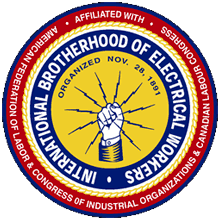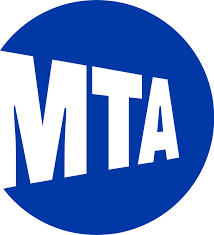April 15, 2013
By Barbara Kestenbaum
In keeping with the long, turbulent struggles in the history of labor—a history that includes farm workers, workers in mills, the men who built the railroads, and the women who stitched clothing in sweatshops—low income workers in NYC are fighting mad and fighting back against corporations who, ever greedy for greater and greater profits, pay miserable wages and sometimes impose unsafe working conditions.
Last week, over 400 fast food workers, organized by a coalition of labor, religious, and community groups known as Fast Food Forward, went on strike demanding a living wage of $15.00 per hour and the right to unionize without fear of retaliation. This is the second walkout by these workers, and it coincided with the 45th anniversary of the assassination of Martin Luther King Jr. in Memphis while he was supporting the rights of striking sanitation workers.
The protesters are demanding justice as they stand up to the fast food industry, companies that have raked in massive profit from the labor of their workers. According to CNBC‘s website, in an article dated January 28, 2013, they report that McDonald’s “revenue increased to $6.95 billion from $6.82 billion a year ago.” And meanwhile, the men and women who do the work are forced to live below the poverty line. It’s shameful that many of these people have to rely on food stamps, some must live in shelters, have no health benefits, and are forced to work a second job in order to keep their heads above water by adding to their grossly inadequate $7.25 minimum wage.
Tabitha Verges, a minimum-wage worker at a Burger King in Harlem, shows the inhumanity of the hourly wage she receives, as she is quoted in a New York Times article, April 4, 2013. “I’m behind on paying my bills,” she said, “I don’t think $15 an hour is asking too much. I do it all. I do three or four jobs. I take orders, I make the orders. I work the cash register. I say, ‘Have a good day.’ I do the inventory. I take out the trash. I get down and scrub the floor. I don’t think $7.25 is nearly enough.” She is so right!
In The Right of Aesthetic Realism to Be Known, Ellen Reiss, Aesthetic Realism Chairman of Education. writes about the cause of the often brutal conditions facing workers:
“The profit motive is the looking at a person in terms of how much money can you get from him or her? And profit economics is composed of the activities of that ugly motive. Centrally, it is the paying people as little as possible for their labor so that the wealth they produce can come not to them but to you…. Though it has been in operation for thousands of years, such a way of seeing one’s fellow humans is a barbaric thing for an economy and the lives of people to be based on. From it have come sweatshops, child labor, hunger, and ever so much poverty, with all that poverty makes for: suffering and stifled hopes and the monumental curtailment of people’s possibilities.”
In recent years, there have been unrelenting efforts to turn back the clock, to keep workers in abject poverty; and with a surplus of labor in NYC, that has been the pattern. I want people to know that beginning in the 1970s Eli Siegel, educator and founder of Aesthetic Realism, showed that an economy based on profit could no longer succeed, had essentially failed. Despite the propaganda in the press, there is no economic recovery. What people are calling a recovery is fundamentally a “jobless recovery,” in which corporate profits rise while more and more work is wrung from the workforce.
In another issue of The Right Of, Ellen Reiss explained:
“Most people have to become poorer so a small number of people can make large profits. And the question Americans now have to answer is one I have asked here before: What should be sacrificed—decent jobs for millions of Americans; or profits of individuals who didn’t earn them, so that millions of people can have decent, dignified lives? There can no longer be both. Another question is: If no one were making personal profit from the work of others, and everyone were making a good living and feeling expressed—would that be good? Would that be beautiful? Ethical? Truly American? The answer is yes!”
Eli Siegel stated the most important question in economics: “What does a person deserve by being a person?” The courageous workers in the fast food industry—one of the few where someone can find a job today—are demanding to be seen and paid with dignity. The jobs of America need to be owned by the people who do the work, not corporations and shareholders. As a retired DC 37 union member who knows how crucial it is to have a union behind you, I am proud to stand in solidarity with these men and women and all working people fighting for the respect they deserve.



